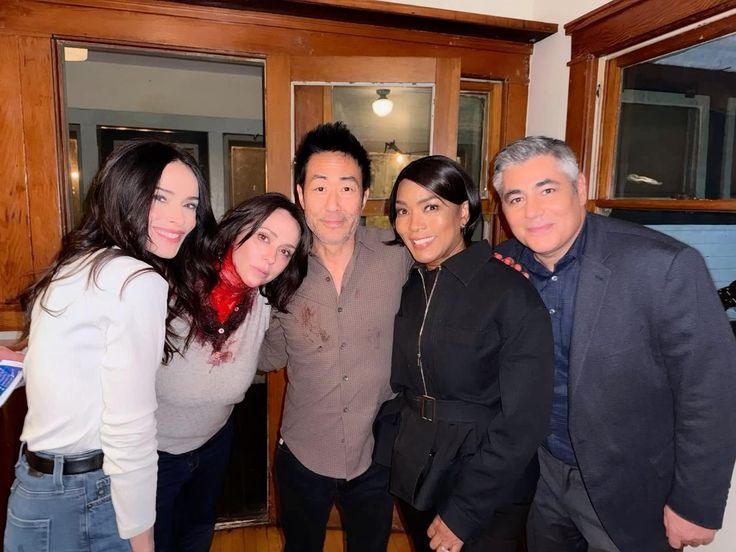
The sudden departure of the show’s original phone operator, Abbigail “Abby” Clark (Connie Britton), was always part of the plan as she joined the team for one season because she’s friends with series co-creator Ryan Murphy. To truly understand the head-scratching decision, one must turn back the clock. A year before 9-1-1 debuted on Fox, in 2017, The Walt Disney Company acquired the network’s parent company, 20th Century Fox. The move further cemented Disney’s borderline monopolistic hold on American media by ceding control of Fox’s film and television studios.
The year after 9-1-1’s debut, in 2019, the massive deal was officially completed. The result was near-instantaneous. While 9-1-1’s fate wouldn’t be in jeopardy for another four years, the writing began appearing on the wall. Disney’s suits quickly pruned anything they deemed “unnecessary” or contradictory to their grand vision for the brand. Upcoming Fox productions, including Mouse Guard, were axed. Now, it should also be noted that producing shows like 9-1-1, with its grand spectacles and increasingly popular stars, isn’t exactly cheap.
In fact, the high costs doomed 9-1-1’s first spin-off, Lone Star, after just five seasons. Episodes cost millions of dollars to produce, and a tightly run ship like Disney will have some natural skepticism about such a project producing any returns. And a tiny fraction of those returns, thanks in part to 20th Century Fox’s minority stake in the show’s production, were being siphoned off. Conveniently, Fox decided the costs weren’t worth the revenue in 2023.
As the show’s sixth season wound down, fans were informed of the shocking news: Fox had canceled 9-1-1. Notably, the show still had a decent chokehold on primetime television. Both the fifth and sixth seasons ranked among television’s top 20 shows. And, in some ways, it’s an understandable sacrifice. Fox Television no longer owned the majority stake; the massive budget was likely eating into the studio’s already limited pockets.
A Power Shift That Rocked the Industry
When ABC acquired major assets from Fox, the television world experienced a seismic shift. It wasn’t just about who owned what—it was about who controlled the future of entertainment. This merger altered the balance of power in Hollywood and sent ripple effects through the entire industry. Let’s dive deep into how ABC’s acquisition of Fox played a big role in reshaping the media landscape—and why it still matters today.
The Background of the Acquisition
What Was the ABC-Fox Deal, Exactly?
In late 2017 and finalized in 2019, The Walt Disney Company, which owns ABC, announced it was acquiring the majority of 21st Century Fox’s entertainment assets. This wasn’t a small deal—it was a jaw-dropping $71.3 billion merger that included:
-
20th Century Fox movie studio
-
FX Networks
-
National Geographic
-
Fox Searchlight Pictures
-
Fox’s stake in Hulu
The remaining Fox properties like Fox News, Fox Sports, and the Fox broadcast network stayed with the newly formed Fox Corporation.
Why Did ABC (Disney) Want Fox?
The entertainment game had changed. Streaming was the new frontier, and Disney wanted ammunition. By acquiring Fox’s deep content library and production capabilities, ABC (under Disney) positioned itself to take on Netflix, Amazon, and others.
The Assets That Changed the Game
Content Is King
ABC gained access to iconic franchises like X-Men, The Simpsons, and Avatar. This helped fuel Disney+ with rich, recognizable content that could draw in millions of subscribers instantly.
FX and National Geographic
High-quality programming from FX added edgy, mature content. National Geographic, on the other hand, gave ABC access to compelling documentaries and educational shows—perfect for both traditional and streaming audiences.
The Hulu Factor
Before the acquisition, Disney already owned 30% of Hulu. With Fox’s 30% stake, Disney (and by extension, ABC) now had majority control—a crucial move to compete in the streaming wars.
How the Acquisition Affected Competition
Consolidation of Power
With this deal, Disney (and thus ABC) became a true titan in entertainment, owning:
-
Pixar
-
Marvel
-
Star Wars
-
ABC
-
ESPN
-
20th Century Fox
This raised eyebrows. Critics feared too much power in one company’s hands could reduce diversity in media voices.
What Happened to Fox?
Fox rebranded itself, focusing on news and live sports. The new Fox Corporation centered around Fox News, Fox Sports, and Fox Broadcasting, separating itself from its previous entertainment legacy.
The Impact on ABC
More Than Just New Shows
ABC’s programming strategy evolved. With Fox’s content now in its portfolio, ABC had:
-
Greater flexibility in show development
-
Access to broader demographics
-
More licensing power internationally
An Edge in Streaming
Disney+ exploded in popularity, thanks in part to Fox’s content library. But ABC’s integration into the digital strategy helped blur the lines between TV and streaming.
What This Means for Hollywood
Fewer Studios, Bigger Giants
This deal was part of a bigger trend: media consolidation. Netflix, Amazon, and Apple’s entrance into content creation meant traditional studios had to merge to survive.
Jobs, Culture, and Creativity
Unfortunately, thousands of jobs were lost due to redundancies. Creatively, the merger stirred debates—would storytelling suffer in a monopoly-like environment?
The Broader Strategy at Play
Global Reach
ABC (Disney) didn’t just want to dominate in the U.S.—they wanted global content dominance. Fox’s international channels helped them tap into massive markets in Europe, Asia, and Latin America.
Building Franchises, Not Just Shows
With more IP under its belt, ABC started building universes, not just episodes. Think Marvel, Star Wars, or even reboots of Fox classics.
Controversies and Challenges
Antitrust Concerns
Many feared that Disney becoming a media superpower would crush competition. Regulators looked closely, and some concessions were made (like divesting certain regional sports networks).
Creative Homogenization?
Critics worried the acquisition would lead to a “sameness” in storytelling. When one company controls too much, originality can take a back seat to profit.
ABC’s Role in the Streaming Revolution
Shaping the Future of Disney+
ABC’s content—both legacy and future—helped round out the Disney+ platform. Now, fans could stream everything from family-friendly animation to FX’s gritty dramas, all under one subscription.
The Rise of Bundle Deals
Thanks to ABC, Hulu, and ESPN, Disney offered bundle packages. This triple-threat strategy gave viewers more value—and made it harder for Netflix and others to keep up.

Key Takeaways from the ABC-Fox Deal
It Wasn’t Just a Buyout—It Was a Blueprint
ABC and Disney didn’t just acquire Fox. They built the foundation for an entertainment empire—one that stretches across platforms, genres, and continents.
The Line Between TV and Streaming Is Gone
ABC’s future isn’t just on cable. It’s on apps, mobile screens, and global services. And Fox gave them the tools to lead that charge.
Conclusion: ABC’s Power Move That Redefined the Rules
ABC’s acquisition of Fox wasn’t just a business decision—it was a strategic masterstroke. It altered the entertainment ecosystem, reshaped streaming, and consolidated creative power in ways we’re still trying to understand.
Whether you’re a casual viewer or a media analyst, one thing is clear: ABC’s role in the Fox merger played a massive part in shaping the TV and streaming experience we know today.